There aren’t many video game characters that are in the consciousness of the general public, however Mario certainly has made great strides in this area. It’s rare to meet someone who has not heard of the Italian plumber named Mario, but those who don’t play video games often may be unaware of his humble beginnings.
Mario was not the main character in his first video game appearance. You may be surprised to know that he wasn’t a plumber, and his name wasn’t Mario either. He made his first appearance in the 1981 pioneering Nintendo arcade game Donkey Kong. Mario’s character was called ‘Jumpman’ and he was a carpenter rather than a plumber. ‘Jumpman’ had to jump over barrels that were being thrown by Donkey Kong in order to save a damsel in distress (which would later be called Princess).
Since those small beginnings, Mario has come a long way. Over the last 30 years Mario has appeared in more than 200 video games and has been referenced in hundreds more Nintendo and non-Nintendo titles. Today we’d like to show you the changes Mario has went through since his humble beginnings over 30 years ago.
The Evolution of Mario
1. Donkey Kong (Arcade) – 1981
Who would have thought that ‘Jumpman’ would go from being a minor character in this game, to being the most successful character in video game history? Even in Mario’s first appearance, most of his trademark looks were there. Including the red hat, tradesman jumpsuit and famous Italian moustache.
2. Donkey Kong (Game & Watch) – 1982
Before Nintendo ruled the world of portable gaming with the Nintendo Gameboy, they had a lot of success with their ‘Game & Watch’ range of handheld games. Mario’s second appearance was in the port of the popular arcade game that was released the year before.
Game & Watch games had a fixed background which allowed the user to take Mario from the bottom screen to the top. Mario is almost recognizable in the game though this has more to do with the limitations of the Game & Watch system.
3. Donkey Kong Jr (Arcade) – 1982
Mario returned in the follow up to Donkey Kong in 1982. The Jumpman moniker was replaced with Mario for this game. Graphics were slightly improved this time around, and Mario was noticeably larger in comparison to Donkey Kong and the background. Apart from his size, the Mario sprite hadn’t really changed in any way.
4. Mario Bros. (Arcade) – 1983
The simple yet addictive Mario Bros was the first game of which Mario was the star. Of course, he had to share the limelight with his brother Luigi, a new character that used green clothing where Mario used red (though they were identical apart from that). Mario himself had changed slightly since his last venture, most notably his nose was a little less protruded.
5. Mario’s Cement Factory (Game & Watch) – 1983
Mario’s Cement Factory was the first Game & Watch game to have Mario as the star. Mario himself was unchanged since his last appearance in the handheld environment.
6. Pinball (NES) – 1984
Mario was frequently used on the cover of NES games, even when he had very little to do with the actual game. In Pinball, Mario was used on the front cover of the game though his appearance in the game was limited to the bonus stage.
7. Super Mario Bros. (NES) – 1985
The game that defined Mario and created a video game mega star. Mario initially started the game small however by taking a mushroom he would grow to double the size. This essentially gave you an extra life as when you were hurt as large Mario you simply reverted back to small Mario. Players could also change into fire Mario by collecting the fire flower. In addition to making Mario bigger, this power up also allowed him to kill enemies using fireballs.
8. Golf (NES) – 1985
Golf was a simple golf game that was highly playable. It was pioneering in many ways as it introduced the power and accuracy bar that has been used in most golf games since.
In the game, Mario resembled a fat middle aged man with a big nose. The design of Mario was bizarre to say the least.
9. Wrecking Crew (NES) – 1985
In Wrecking Crew, Mario donned a safety helmet and a sledgehammer. His skin color was slightly different from other games, though the actual design of Mario wasn’t too different from Super Mario Bros.
10. Super Mario Bros. (Game & Watch) – 1986
Super Mario Bros was brought to Game & Watch in 1986. This time the character looked more like Mario from its console namesake.
11. Mario Bros. II (Commodore 64) – 1987
The sequel to the original Mario Bros was only released on the Commodore 64 and bore little resemblance to the original game. Due to the Commodore 64 being less powerful than the NES, Mario & Luigi were not as defined as in their console games.
12. Punch-Out!! (NES) – 1987
Little Mac was the star of the popular game Punch Out though Mario was still able to play a part as the referee. Like Golf, Mario looked a little more human in the game. His stomach was fairly big again too!
13. Super Mario Bros. 2 (NES) – 1988
After Nintendo decided that the sequel to Super Mario Bros that was released in Japan was too difficult for American gamers, they adapted the Japanese game Yume Kojo: Doki Doki Panic and re-branded it as Super Mario Bros 2. Due to this, the game didn’t feel the same as other Mario games.
This was the first game in which Luigi was not the same as Mario except with different colors. Mario’s brother was noticeably taller, giving the ability to jump higher than Mario. Mario could run faster though.
14. Super Mario Bros. 3 (NES) – 1988
Regarded as one of the best video games of all time, Super Mario Bros. 3 saw Mario being given a lot of new powers. In addition to the super mushroom and fire flower power ups, it introduced the raccoon suit for flying, frog suit for swimming and hammer suit for throwing hammers. A similar suit to the raccoon suit was the tanooki suit. It also allowed Mario and Luigi to fly, however they could also turn themselves into stone to avoid being seen by enemies.
15. Super Mario Land (Gameboy) – 1989
Mario’s first adventure on the Gameboy was based on the original Super Mario Bros that was released 4 years before. Whilst it shares the same style and Mario uses the same power ups etc, all of the levels are completely different.
16. Super Mario World (Super Nes) – 1990
Super Mario World was the fourth title in the Super Mario Bros series. Mario had mainly appeared in NES games for the several years previous to this release and he looked much better in the new Super NES system. Colors were brighter, bolder and more defined.
The game featured a feather power up that allowed Mario to fly. It worked in a similar way to the raccoon suit in Super Mario Bros 3 however the cape allowed Mario to fly up and down and then make a crash landing. The game also introduced Mario’s friend Yoshi, a friendly dinosaur that could eat berries and shoot out flames.
17. Dr. Mario (NES) – 1990
Dr. Mario was a popular Tetris like puzzle game that featured Mario dropping medicine down to eliminate viruses. Despite the game being named after him, Mario was only represented at the side of the game as a Doctor.
18. NES Open Tournament Golf (NES) – 1991
Mario looked a lot better when he returned for his second golf game for the NES. Luigi could be chosen as a second character and Princess Peach and Princess Daisy were used as caddies.
19. Yoshi (NES) – 1991
Graphically similar to Dr. Mario, Yoshi was a puzzle game that featured lots of common Mario enemies. Mario was controlled by the player and could switch around to ensure the enemies fall into the correct places.
20. Super Mario Kart (Super NES) – 1992
Another Mario game that is regarded by many as one of the best console games of all time. Super Mario Kart featured lots of characters from the Mario world such as Mario, Luigi, Donkey Kong Jr and Bowser. Each character had different strengths and weaknesses for driving and players that weren’t controlled by humans had their own special powers e.g. Donkey Kong Jr threw bananas.
21. Mario Paint (Super Nes) – 1992
Mario Paint was an interesting game that came packaged with the SNES mouse. The game allowed you to create drawings and music within the game and save it for later. Mario appeared throughout the game in a variety of ways. For example, in the music generator he would jump along on top of the beats.
22. Mario is Missing! (Super NES) – 1992
As the game title suggests, Mario is missing, therefore his brother Luigi took centre stage in this educational game. The game bears a striking resemblance to the graphics used in Super Mario World.
23. Super Mario All-Stars (Super NES) – 1993
Also known as Super Mario Collection, Super Mario All-Stars contained Super Mario Bros 1, 2 and 3. The original Super Mario Bros 2 that was only released in Japan was included as well and was referred to as ‘Super Mario Bros.: The Lost Levels ‘. A later version of the game also included Super Mario World.
All of the games had been visually enhanced to take advantage of the 16 bit graphics the Super Nes offered. Other than that, the games were identical to the original NES equivalents.
24. Mario & Wario (Super NES) – 1993
The 1993 side scrolling game Mario & Wario was only released in Japan. Users had to take Mario through each level avoiding obstacles using the SNES mouse accessory.
25. Hotel Mario (CD-i) – 1994
Another Mario themed puzzle game that has the unfortunate tag of one of the worst Mario games ever released. The cut scenes featuring Mario and Luigi used full motion video.
26. Donkey Kong (Gameboy) – 1994
The first game to be designed with the SNES Super Game Boy peripheral, it is perhaps surprising that one of Nintendo’s flagship games was not released until 5 years after the Gameboy was first launched. The player had to guide Mario through a whopping 101 levels in order to save Pauline from Donkey Kong. The game play is very similar to the original Donkey Kong games released in the arcades.
27. Mario’s Tennis (Virtual Boy) – 1995
The Nintendo Virtual Boy was available in the shops for less than 6 months in North America. Mario was the star of 4 of the 22 games that were released for the system worldwide. Mario’s Tennis was the game that came packaged with the system so is probably the most recognizable to gamers.
28. Mario Excite Bike (Satellaview) – 1995
Mario Excite Bike was a remake of the original NES game released over 10 years before. All human players had been replaced by Mario and his friends. The graphics had been improved considerably too to work with the SNES modem add on Satellaview.
29. Super Mario 64 (Nintendo 64) – 1996
Super Mario 64 was a huge evolution for Mario, platformers and gaming in general. The game was set in a 3D environment, which was a huge leap forward as most other consoles on the market at that point were still 2D. Players had much more control over what Mario could do and were not simply limited to running and jumping.
Using the Nintendo 64’s analogue controller, players could now walk, run, crouch, creep, swim, crawl, climb and more. He could also do double and triple jumps and jump off walls. Not only that, Mario could talk! It was, in essence, a re-imagining of Mario and what he could do.
30. Super Mario RPG: Legend of the Seven Stars (Super Nintendo) – 1996
The Super NES had a fine collection of role playing games, the most recognizable probably being The Legend of Zelda: A Link to the Past. Super Mario RPG was the last Mario game developed for the SNES. It was developed by RPG veterans Square, who had already released SNES classics such as Chrono Trigger, Final Fantasy VI, Breath of Fire and Secret of Mana.
The game shared a lot of similarities to other Square RPG’s though Mario himself looked more like the Mario from Super Mario 64 than any SNES game with Mario in it. It was the first ever Mario role playing game and the graphics, game play and humour ensured it got great reviews.
31. Mario Party (Nintendo 64) – 1998
Mario Party was the first Mario party game released by Nintendo. It was a fairly boring one player game but quite fun in multi-player modes. In total Mario Party had 56 mini games. Mario and his friends looked very similar to how they looked in Super Mario 64. The latest game to be released in the series was Mario Party 9, which was released for the Wii in 2012.
32. Mario Golf (Nintendo 64) – 1999
Mario grabbed his golf clubs again for Mario Golf in 1999. It was a very simple game to play and included lots of fun mini games such as speed golf and mini golf. Baby Mario and Metal Mario could also be selected as playable characters.
33. Paper Mario (Nintendo 64) – 2000
What was originally developed as Super Mario RPG 2 was eventually released as Paper Mario. The RPG was well received but was criticized for being too easy. Mario looked much younger in this serious of games compared to his other appearances.
34. Mario Tennis (Nintendo 64) – 2000
In Nintendo’s 1984 Tennis game for the NES, Mario was the referee. It wasn’t until 2000 that he got to star in a tennis game of his own. Mario Tennis proved to be a popular game with video game fans. Easy to pick up and play but enough advanced controls to keep things interesting for more experienced players. Like many Nintendo 64 games, the game took advantage of the systems 4 built-in controller ports.
35. Super Smash Bros. Melee (Gamecube) – 2001
The sequel to the Nintendo 64’s Super Smash Bros became the best selling game on the Nintendo Gamecube (closely followed by Mario Kart: Double Dash!! and Super Mario Sunshine!). The game can be best described as multi-player fighting mayhem. With a choice of 26 characters, 4 players could battle it out in a free for all. To KO an opponent you had to knock out them off the screen. This became progressively easier to do as enemies took more damage.
36. Mario Kart: Super Circuit (Gameboy Advance) – 2001
Mario Kart: Super Circuit was a highly anticipated game and was well received by gamers. It was the first Mario Kart released on a hand held device. 20 new tracks were included and 20 from the original Super Mart Kart that was released on the SNES. The actual game played more like Mario Kart 64 than the original game though.
37. Super Mario Sunshine (Gamecube) – 2002
Super Mario Sunshine wasn’t available when the Gamecube launched though this didn’t stop it from being one of the best selling titles for the system. Like Super Mario 64, the game was set in a 3D environment. Mario has lots of new abilities, the most popular being FLUDD, a backpack that was strapped to Mario that allowed him to squirt enemies with water. New characters were also introduced such as Bowser Jr and Toadsworth.
38. Mario Kart: Double Dash (Gamecube) – 2003
The first Mario Kart on a console in 7 years had a lot to deliver. Whilst it wasn’t perfect, it was certainly a fun game, particularly in multiplayer. The big difference in this game to others in the series is the ability to use two players on a kart: one drives whilst the other holds on to the back. Players can switch between the two characters at any time.
39. Mario Kart DS (Nintendo DS) – 2005
The next Mario Kart to be released was Mario Kart DS for the Nintendo DS. The game took advantage of the handheld’s dual screen by showing the main game in the top screen and the map and ranking at the bottom. Players could also pit themselves against others online.
40. Super Mario Strikers (Gamecube) – 2005
Super Mario Strikers was Mario’s first football (soccer) game. It was an arcade style five-a-side game that allowed players to use power ups such as bananas and red shells against their opponent.
41. New Super Mario Bros. (Nintendo DS) – 2006
4 years after the release of Super Mario Sunshine, Mario returned in his own platform game. The game left behind the 3D world and returned Mario to his 2D side scrolling roots. It stayed true to the original games and brought in lots of new features too. New power ups included a blue shell that lets Mario withdraw into a shell to protect himself from enemies, a mega mushroom that makes Mario huge for a set period of time and a mini mushroom that lets Mario run across water and enter pipes that normal Mario can’t enter.
New Super Mario Bros was a huge success. It sold over 26 million copies and as a result became the best selling Nintendo DS game of all time.
42. Super Mario Galaxy (Wii) – 2007
Super Mario Galaxy was the next in the main series of Mario games after Super Mario Sunshine. In the game, Mario had to collect Power Stars from different planets. Once again, Nintendo had developed a classic which is regarded by many as one of the best video games of all time.
Playing the game was a little different from other Mario games due to the game using the Wii Remote and Nunchuk. This added a new dynamic to playing a Mario game. It also included a co-operative gaming mode for two players.
43. Mario & Sonic at the Olympic Games (Wii) – 2007
No one would have thought 20 years ago that Mario’s main platform gaming rival, Sonic the Hedgehog, would one day be headlining games with him. 24 sporting events were featured in the game including rowing, archery, athletics, gymnastics and more.
44. Mario Kart Wii (Wii) – 2008
Nintendo took full advantage of the Wii’s capabilities when it released Mario Kart for the system. The game came packaged with the Wii Wheel accessory which allowed players to play the game using a steering wheel. This added a huge new dynamic to the game and a lot more fun to play. The game also had fantastic online features which allowed players to easily play people from around the world.
45. New Super Mario Bros. Wii (Wii) – 2009
The success of New Super Mario Bros on the DS in 2006 was no doubt the driving force behind them releasing a console version. It proved to be hugely successful as well, and was one of the best selling Wii games released. The Wii version has different levels from its handheld counterpart and 4 players can play at the same time.
46. Super Mario Galaxy 2 (Wii) – 2010
More of a case of evolution than revolution, Super Mario Galaxy 2 looks like it’s predecessor visually though it is widely regarded as a better game.
47. Mario Sports Mix (Wii) – 2010
Nintendo continued with their Mario sports games with Mario Sports Mix. Sports include basketball, volleyball, dodgeball and hockey. Unfortunately, the game wasn’t well received.
48. Mario vs. Donkey Kong: Mini-Land Mayhem (Nintendo DS) – 2010
A fun puzzle game in which the player has to guide toy Mario’s to the exit.
49. Super Mario 3D Land (Nintendo 3DS) – 2011
Super Mario 3D Land is an interesting game that includes elements of 2D and 3D platforming. It includes lots of features from other games such as the power leaf from Super Mario Bros 3. It has earned the accolade of being the fastest selling Mario handheld game in history.
50. Mario Tennis Open (Nintendo 3DS) – 2012
Mario’s latest tennis game was released for the Nintendo 3DS this year. It received mixed reviews though it does have some cool features such as multiplayer support for up to 4 players over a Wi-Fi connection.
Coming Soon: New Super Mario Bros. U (Wii U) – 2012 or 2013
The sequel to New Super Mario Bros Wii is set to become the main launch game for Nintendo’s upcoming new system Wii U. It will work with the Wii Remote and with the new gamepad. The trailers that have been released so far suggest it’s going to be another classic.
Still Evolving
Mario has come along way from his humble beginnings as a bit part in someone else’s game. He changed a lot over the first 15 years of his life though his general appearance hasn’t changed much since Super Mario 64 (except for general improvements in graphics). It could be easy to look at Mario as the Krusty The Clown of gaming due to the number of games he has been attached to, though that’s not a fair representation. Mario has been the best selling gaming franchise for a reason. Not every Mario game has been a classic though generally speaking Mario themed games always get good reviews.
Whilst Mario has branched out into sports games, party games, RPG’s and more, he is still primarily known for his platform games. The main series of games have been at the forefront of gaming since the original Super Mario Bros was released on the NES in 1985. Every one since then has been widely acclaimed by critics and players and most were the best selling games on the consoles they were released for (though this was sometimes due to the game being bundled with the console). With the release of New Super Mario Bros U next year, this trend is sure to continue.
What are your favorite Mario appearances or games in the series?
(rb)










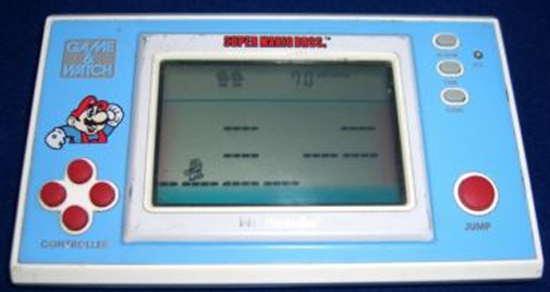
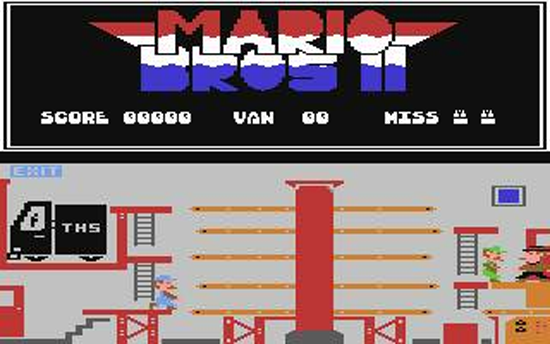





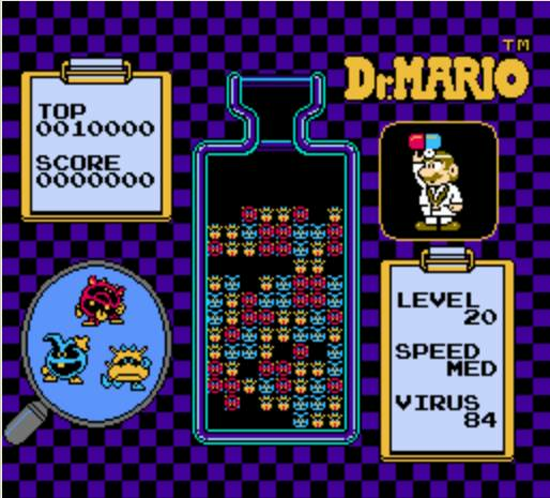
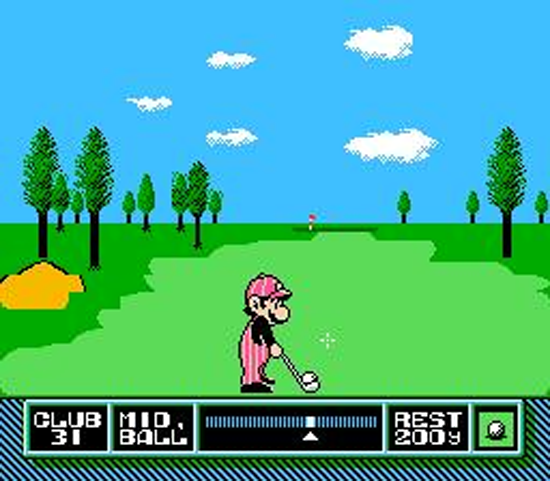

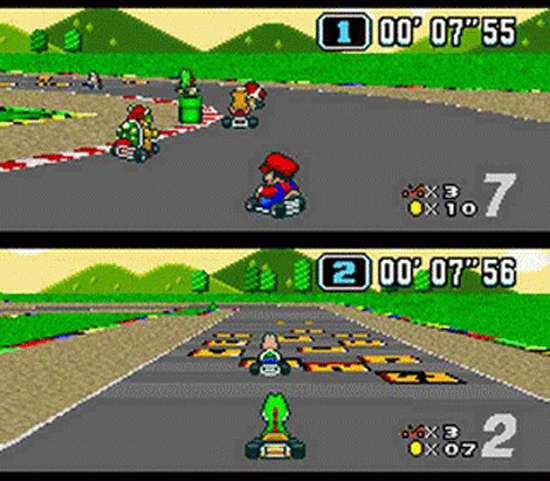
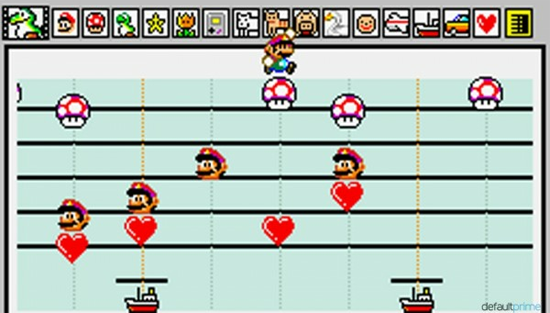


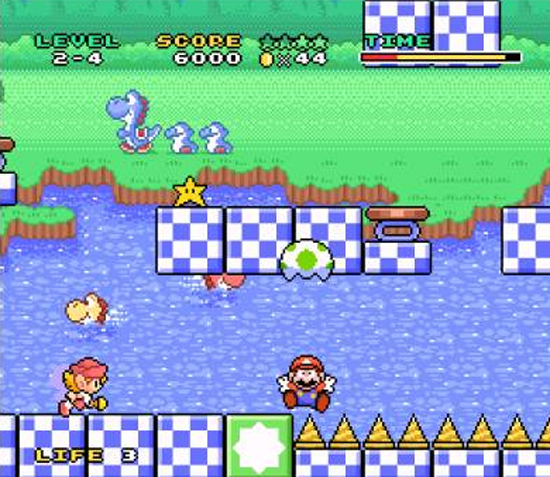

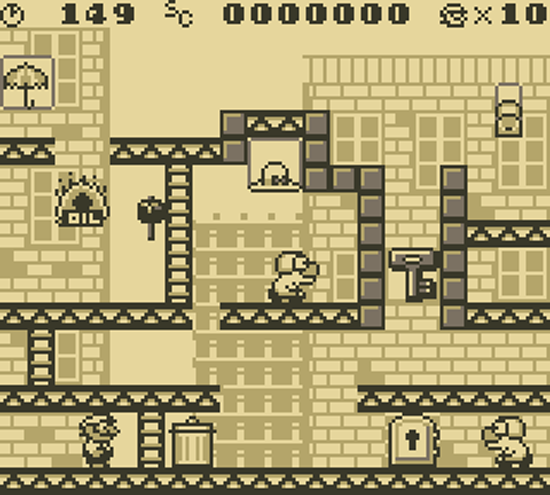
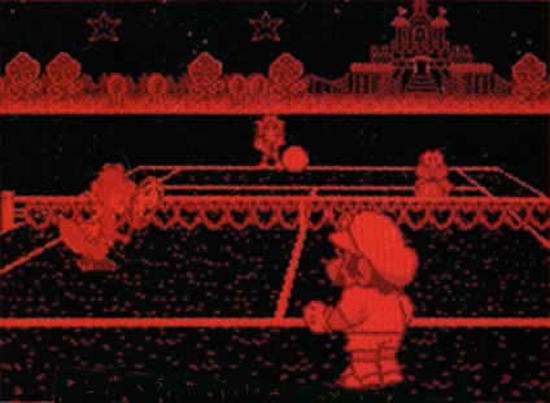
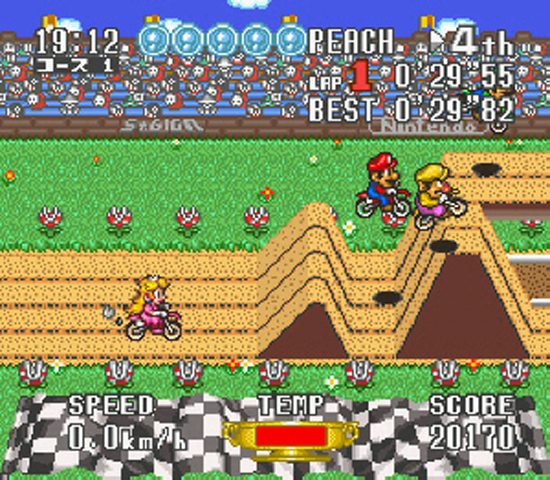
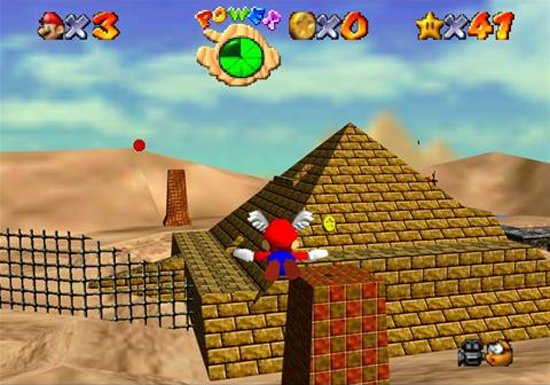




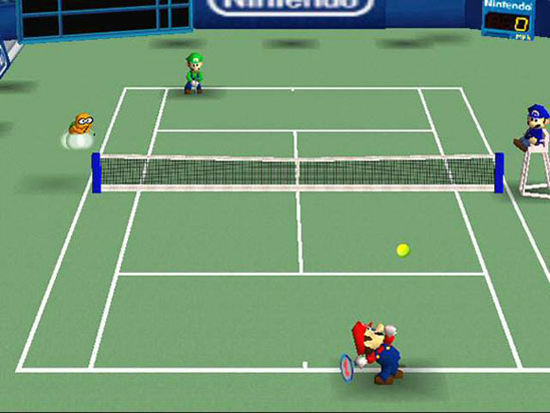


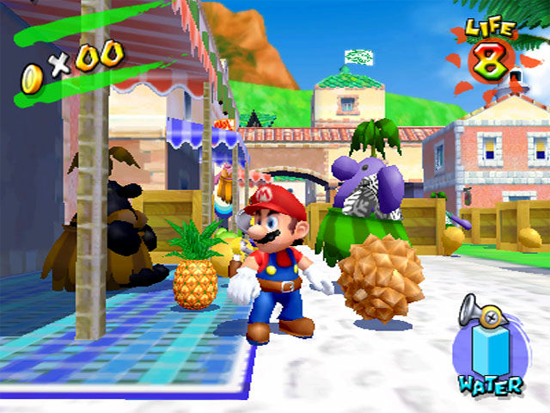
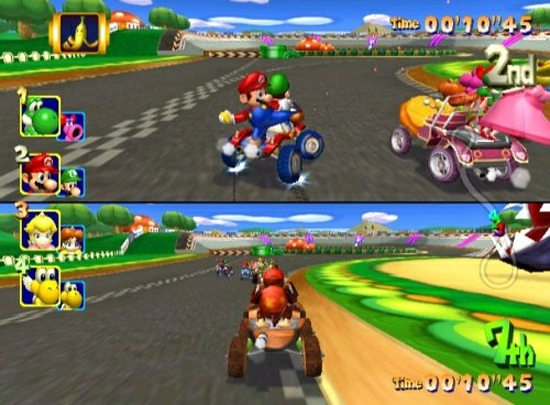

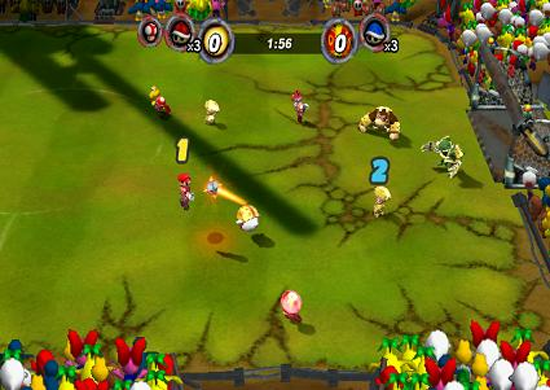


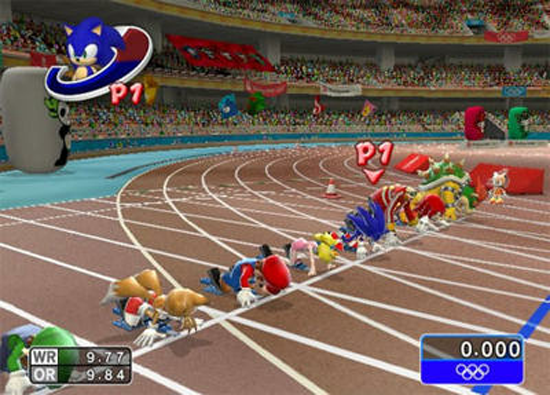


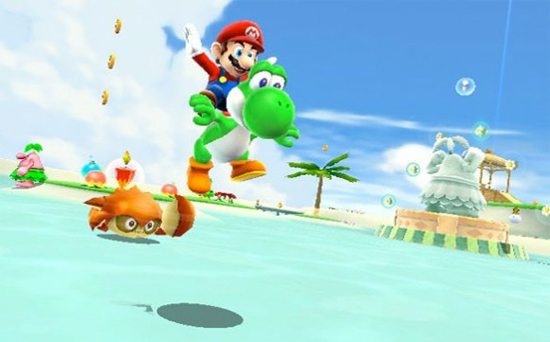
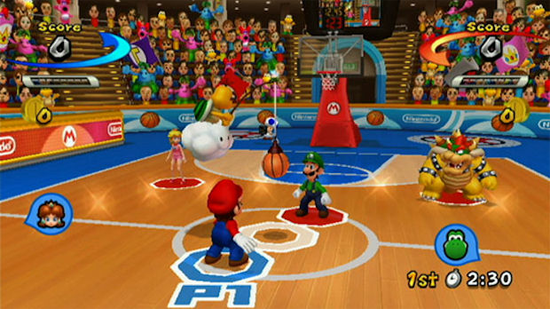


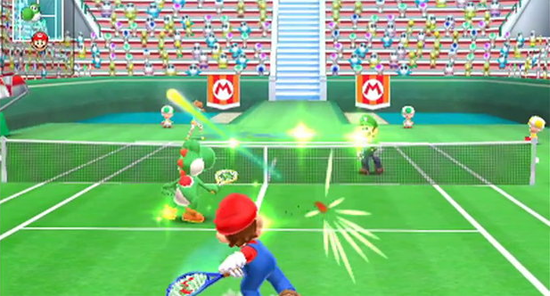
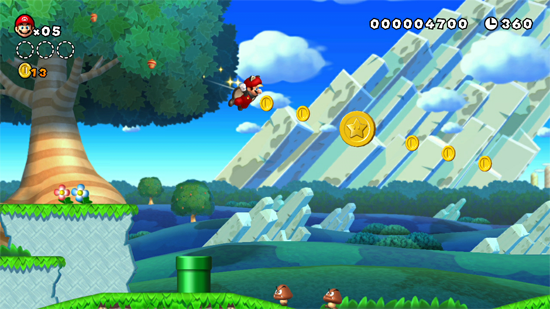











Send Comment:
20 Comments:
More than a year ago
Could i get a list of your sources
More than a year ago
Nice list! How come Mario Bros game and watch isn't mentioned? The one where they work in a packing factory? Pretty sure that's the first appearance of Luigi as well. Still have that version!
More than a year ago
after nsmbu is super mario 3D world
More than a year ago
Love it! I want more!
More than a year ago
I agree that Mario is a video game legend! It's crazy to think that he started out as 'Jumpman' and was a carpenter instead of a plumber. And who knew that his second appearance was in a handheld Game & Watch game? Nintendo has come a long way since then, huh?
More than a year ago
I was surprised when you completely skipped over Paper Mario: The Thousand Year Door. It was, hands down, probably the best Paper Mario game so far.
More than a year ago
i love u
More than a year ago
There's a lot of games past NSMBU Such as Super Mario Maker 2, Smash Bros. Ultimate and other switch games, but everything before switch seems about right.
More than a year ago
its nice to see that there are still some people out there that like to put this kind of information up, Mario has always been part of my family and as an adult i'll keep passing that tradition along... The thing i like about nintendo is that doesnt make mario different, its the same italian bronx mexican guy created by a japanese.LOL
More than a year ago
wow amazing collection my childhood is back
More than a year ago
Since exactly when was the CBM 64 _LESS powerful_ than the NES?
cu, w0lf.
More than a year ago
One of my favorite computer games!
More than a year ago
I agree, awesome review of the article. Only thing I don't agree with is Mario Kart Double Dash "7 years for consoles". Where is Mario Kart 64? A awesome game for the N64. Otherwise great.
More than a year ago
Mario Kart 64?
More than a year ago
Great post. Nice collection of images from year to year. Thanks for this post on the evolution of mario.
More than a year ago
I had the "1982 Game & Watch" orange game...loved it.
You've inspired me to go through the attic and find it. I wonder if it still works?
David
More than a year ago
"30. Super Mario RPG: Legend of the Seven Stars (Nintendo 64) – 1996"
Came out for SNES, not Nintendo 64
More than a year ago
wow !! huge collection !!! waiting evolution of Link (The legend of Zelda)
More than a year ago
You forgot about really great Mario Tennis for GBC.
More than a year ago
Great collection